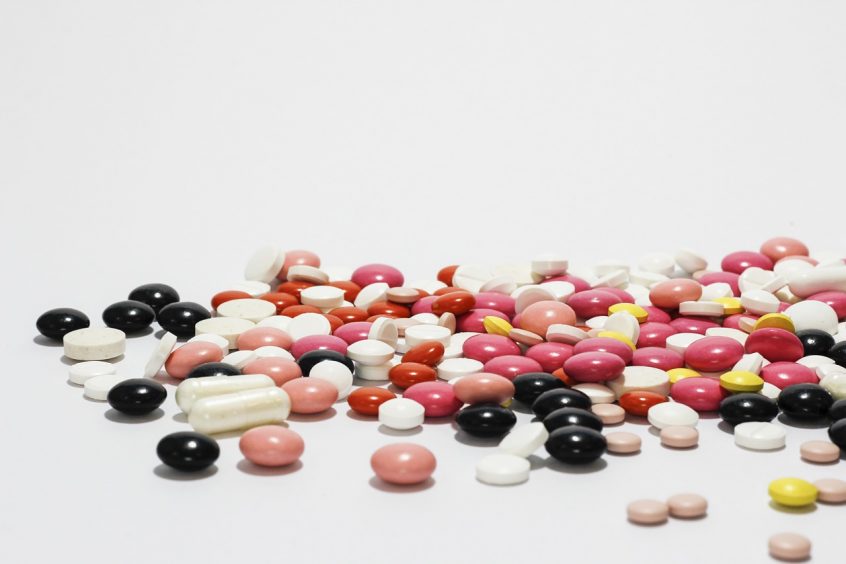There are certain prescription and over-the-counter medications that have the potential to induce or exacerbate depression and anxiety conditions. The way they do this is because a number of them cause nutrient deficiencies, upset the balance of certain nutrients, affect neurotransmitter function or cause gut flora imbalances. This is the eighth post in a series on some of the physiological (non-psychological) causes of depression and/or anxiety and how naturopathic treatment can help.
The medications in question include proton pump inhibitors (known by the brand names Nexium, Pariet, Prisolec, Prevacid, Protonix, Somac and generic names such as omeprazole, iansoprazole and esomeprazole to name a few), over-the-counter antacid medication, the oral contraceptive pill, anti-histamines, antibiotics and certain asthma inhalers and antidepressants.
Proton pump inhibitors (PPIs) and antacids work by reducing the amount of stomach acid produced. Stomach acid is needed to digest protein (protein is needed for mood regulating neurotransmitter production) and to absorb certain minerals and vitamins, which, are also needed to produce neurotransmitters. Vitamins and minerals affected include magnesium, calcium, iron and vitamins B6, B2 and B12. When these nutrients are deficient the body has a harder time in producing neurotransmitters involved in mood regulation such as serotonin, dopamine, noradrenaline and GABA. In addition, long-term PPI has been shown to predispose individuals to an overgrowth of certain pathogenic bacteria, which, upsets the normal gut flora balance and can lead to mood disturbances.
PPIs were never meant to be prescribed over the long-term. They are used as part of the 6-8 week triple therapy protocol for eradicating Helicobacter pylori (the organism responsible for gastric ulcers). They decrease stomach acid so the ulcer has a chance to heal while the antibiotics take effect. Unfortunately they are often overutilized and some individuals are on them for years. PPI-induced nutrient deficiencies and their long-term consequences are well documented in the literature, as is their link to depression.
The oral contraceptive pill (OCP) has also been shown to deplete critical nutrients such as zinc, magnesium, folate and vitamin B6, vitamin C, tyrosine and the antioxidant selenium. All of these nutrients are essential for a healthy mood and deficiencies can lead to depression and anxiety. Furthermore, the OCP upsets the balance of certain nutrients such as iron, copper and vitamin A by actually increasing them in the body. Increased copper causes an increase in adrenaline, which can cause overstimulation and anxiety.
Anti-histamines (often taken for allergies and sinus problems), if taken long-term, actually cause more histamine to be produced (known as the rebound effect). Histamine, aside from its other functions, is also a neurotransmitter, and excess can cause depression and anxiety symptoms.
Antibiotics can affect mood due to their effect on the gut flora balance. It is well documented that our gut flora has a significant role in mood regulation via its communication with the brain. Additionally gut flora makes vitamin B12. An imbalance in the right gut flora, therefore can lead to decreased neurotransmitter production, due to B12 deficiency.
Lastly, there are certain prescription medications like some asthma inhalers and antidepressants that contain the halogen bromine. Bromine competes with iodine in the thyroid by taking up space in the receptor where iodine needs to go. If there is not enough iodine, the thyroid cannot make enough thyroid hormones. Low thyroid hormones have been associated with the onset of depression. See my previous thyroid post for more detail.
I do not advise anyone to stop their medication without first consulting their doctor. In a perfect world, none of these medications would need to be prescribed however, there are times in our lives when they are needed. My advice for anyone on these medications is to address the root cause for their symptoms (often, by addressing the root cause, the medications are no longer needed), find a safer alternative or at the very least mitigate the side effects of these medications via nutritional supplementation.
If you are on the medications mentioned above, or any others, and would like assistance in this area, please contact Zest Infusion to schedule an individual naturopathic consultation.
Stay tuned for my next post in this series on the link between methylation with depression & anxiety.
Yours in Health,
Micaela Monteiro-Haig
Naturopath
References
Akinloye, O., Adebayo, T.O., Oguntibeju, O.O., Oparinde, D.P. and Ogunyemi, E.O., 2011. Effects of contraceptives on serum trace elements, calcium and phosphorus levels. West Indian Medical Journal, 60(3), pp. 308-315.
Cryan, J.F. and Dinan, T.G., 2012. Mind-altering microorganisms: the impact of the gut microbiota on brain and behaviour. Nature reviews Neuroscience, 13 (10), pp. 701-712.
Gropper, s, Smith, J, Groff, J. 2009, Advanced Nutrition and Human Metabolism, 5th edn., Wadsworth Cengage Learning, CA.
Kulkarni, J., 2007. Depression as a side effect of the contraceptive pill. Expert Opinion on Drug Safety, 6(4), pp. 371-374.
Lam, J.R., Schneider, J.L., Zhao, W. and Corley, D.A., 2013. Proton pump inhibitor and histamine 2 receptor antagonist use and vitamin B12 deficiency. JAMA, 310(22), pp. 2435-2442.
Maintz, L. and Novak, N., 2007. Histamine and histamine intolerance. The American Journal of Clinical Nutrition, 85(5), pp. 1185-1196.
Mercola, J., 2009. Bromines: avoid this if you want to keep your thyroid healthy, http://articles.mercola.com/sites/articles/archive/2009/09/05/another-poison-hiding-in-your-environment.aspx, viewed 2014
Palan, P.R., Strube, F., Letko, J., Sadikovic, A. and Mikhail, M.S., 2010. Effects of Oral, vaginal, and transdermal hormonal contraception on serum levels of coenzyme Q10, vitamin E, and total antioxidant activity. Obstetrics and gynecology international, 2010.
Sheen, E. and Triadafilopoulos, G., 2011. Adverse effects of long-term proton pump inhibitor therapy. Digestive Diseases and Sciences, 56(4), pp. 931-950.
Yang, Y.X., Lewis, J.D., Epstein, S. and Metz, D.C., 2006. Long-term proton pump inhibitor therapy and risk of hip fracture. JAMA, 296(24), pp. 2947-2953.
Share this Post

